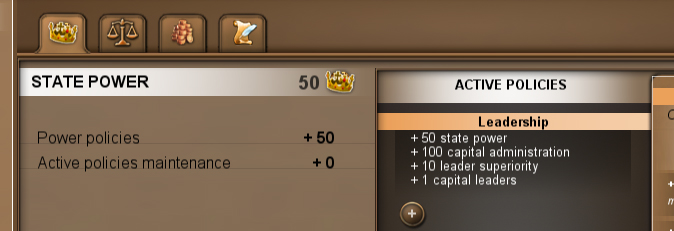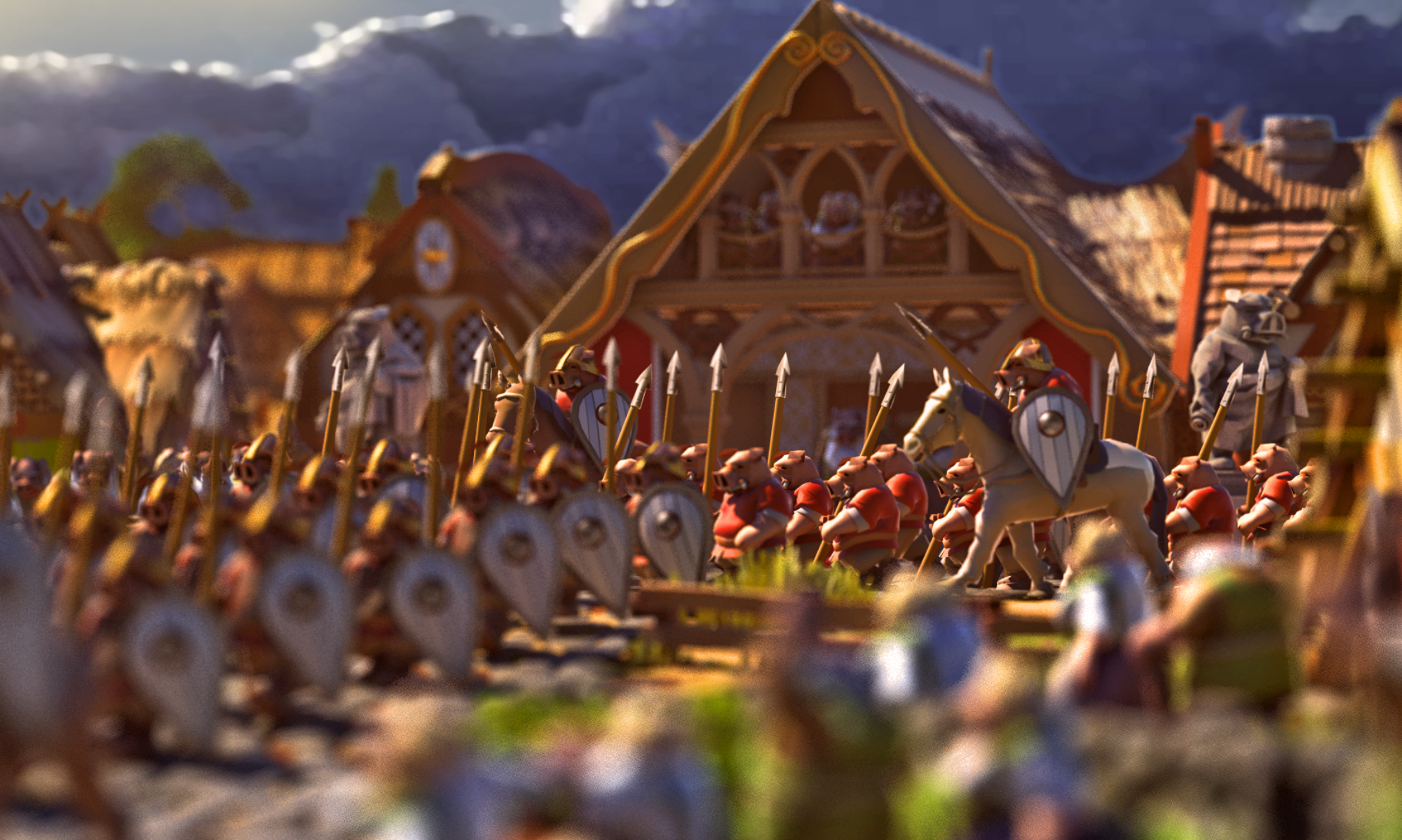Importance of the different legitimacy sources
More details about how Legitimacy actually works:
There is several “sources” of legitimacy : legitimacy from religiosity, legitimacy from people’s approval, legitimacy from the Senate etc…
Many policies affect a certain type of legitimacy. For instance, enabling the Senate through the power policy “Senate” obviously increases the Legitimacy from Senate stat.
But a legitimacy source doesnt necessarily have any effect. It will depend on your active Legitimacy policies: these define your “claims” to power.
Each legitimacy policy modifies the ‘importance’ of each different source of legitimacy. It can also turn one source into having a negative effect on your final Legitimacy.
For instance: one source is called legitimacy from the leader’s superiority. It represents how superior your leader(s) are perceived in contrast to the commoners. The wealth of the Leaders class compared to the average population is what mostly defines the value of this source.
If you enable the “Divine leader” legitimacy policy ( claiming to be ruling as a god ), then this source will have a positive effect on your final Legitimacy, and it will be best to try to increase it by having your leader(s) as rich as possible.
On the other hand if you enable the “People’s representative” one ( claiming to be ruling in name of the people ), then this source will actually be inverted and have a negative effect on your final Legitimacy.
Nothing prevents you from enabling contradicting legitimacy policies like these 2 together, but it will tend to neutralize all sources, resulting in a very low final Legitimacy.
However having an illegitimate power will not be the end of the world as long as you’ll have enough military authority to repress any unrest.
The finality of State Legitimacy is to be a factor in the calculation of a region’s Loyalty, among other things. Low loyalty will lead to unrest and rebellion.
State Power
I’ve added and implemented State power. It is in a way what Administration is to local regions: the ability of the state to manage and do things.
State Power is mainly produced by the different active Power policies. For now it’s only consumed by one thing : all policies cost State power to be maintained.

All policies implemented
I have finished implementing the effects of all the planned policies so far.
I’ve also added 2 new Power ones : Ministry and Parliament.
While the Senate is good if you claim to rule for Common-good, Parliament is good to improve your legitimacy as a People’s representative. Both will eventually get their own special buildings.
A Ministry is a less costly and polyvalent institution providing a decent amount of State power.


Yes that’s the plan ^^ But not implemented yet…
Especially buildings improving the Superiority of the leader.
I mean after all that’s why Egyptians built badass pyramids 🙂
Ronchon, I’m translating every blogpost to a portuguese grand strategy game’s fórum. I hope to see more people here =D
Keep the good work.
You say that will be specif buildings. Could some buildings give more legitimacy? Like a big an awsome statue of my ruler giving “legitimacy from the leader’s superiority”? Or a big temple to my god-dinasty… or even some “comunes”, to my people’s leader…
Yes leaders do die like everyone else. But its mostly “invisible” as like every other job they are automatically replaced as generations pass.
And yes i add an “s” because eventually it will be possible to have multiple leaders, like in a triumvirate or a politburo ^^ I don’t know yet.
Thanks for the ideas! I might go for ” minimum profit “or simply “profitability” 🙂
Two news within a week, you are pampering us!
I noticed the “(s)” after leader. Does-it mean that players’ kingdoms will potentially be ruled by several leaders? Like a kind of familial dynasty? By the way, will leaders (and other officials) age and die like the rest of the population, or will they be “immortals”?
Concerning the previous news, here are some ideas to rename “production cost” in the right side board and avoid the repetition with the one on the left side:
Cost threshold/Cost price/Break-even / Break-even point /Reaching profitability /Reaching minimum profitability/ Profitability threshold/Minimum profit margin
I see. I remembered about salaries, but not to nobles or leaders, only to officials. Glad to hear you now.
I especially like this “privileges” policy. 🙂
Yes you can now use policies to enable state salaries or state privileges.
These allow you to pay a salary or give privileges to state members (officials,nobles and leaders so far).
Privileges allow you to divert a portion of your region wealth, transferred directly to the privileged class.
So you can for instance divert 10% of your region wealth and give it as privileges to your leader class, making him/them very rich.
That’s interesting. Thank you for the devblog Ronchon.
There is some good ideas in it. But I have a question : in order to have rich leaders, will there is a mecanism to “give them” the produce of taxes ? Because otherwise, I feel like merchants will get all the money.
Good for a merchantcraty, less for other monarchics and unegalitarian governments. 😛
So, is there a mean to … orient the flow of richesses to your elite ?